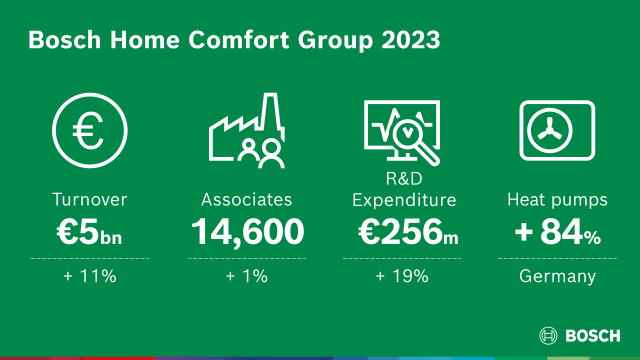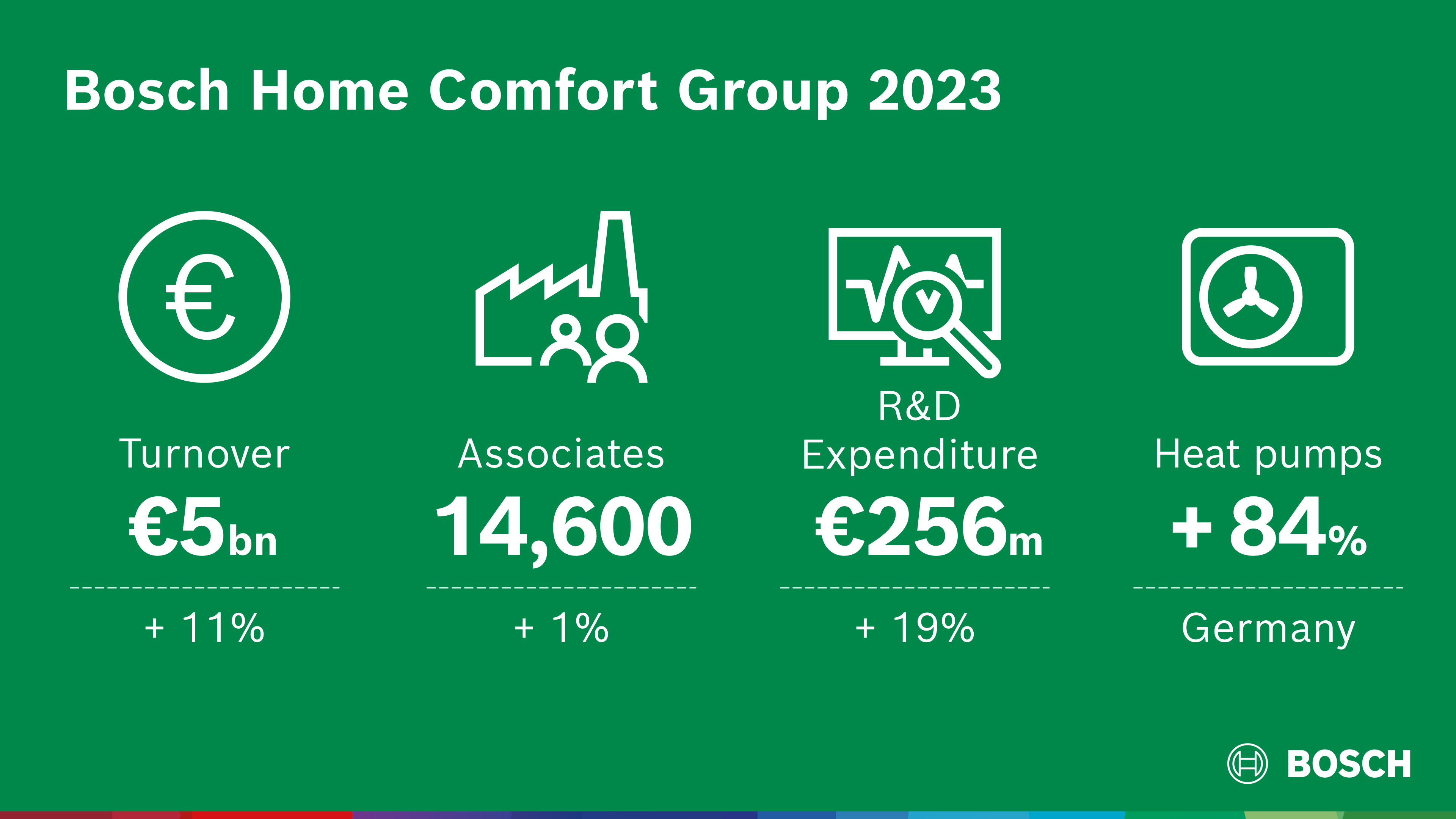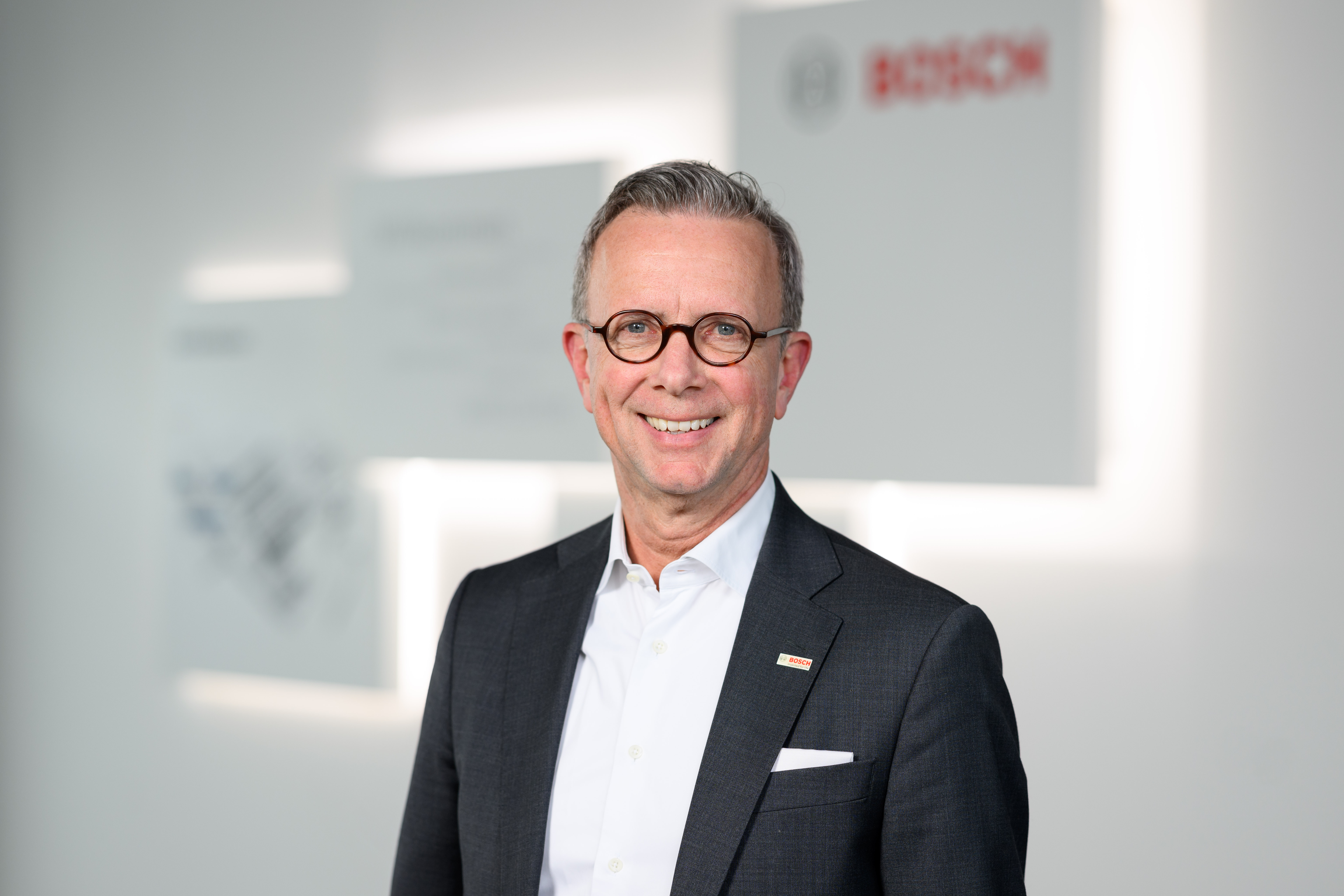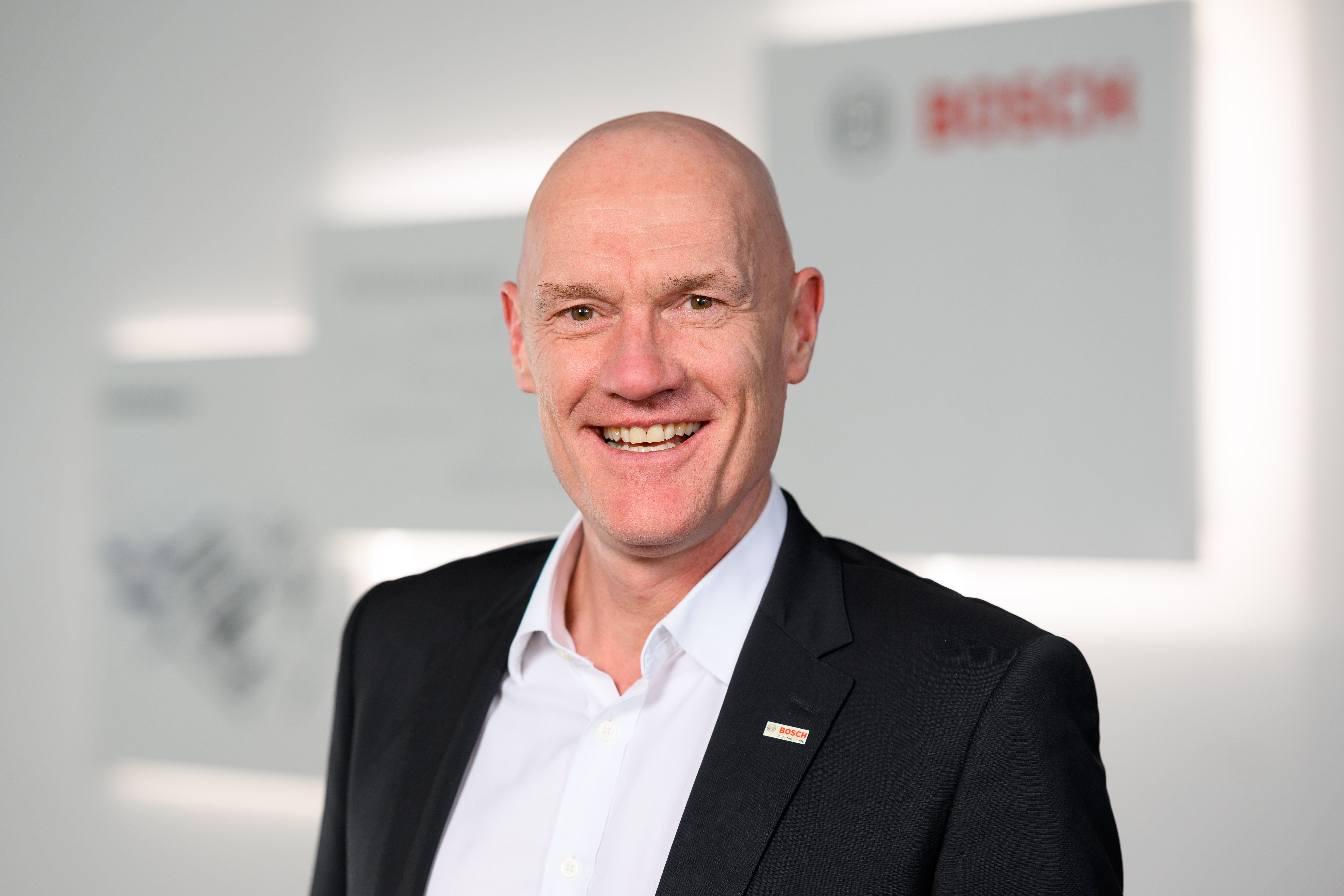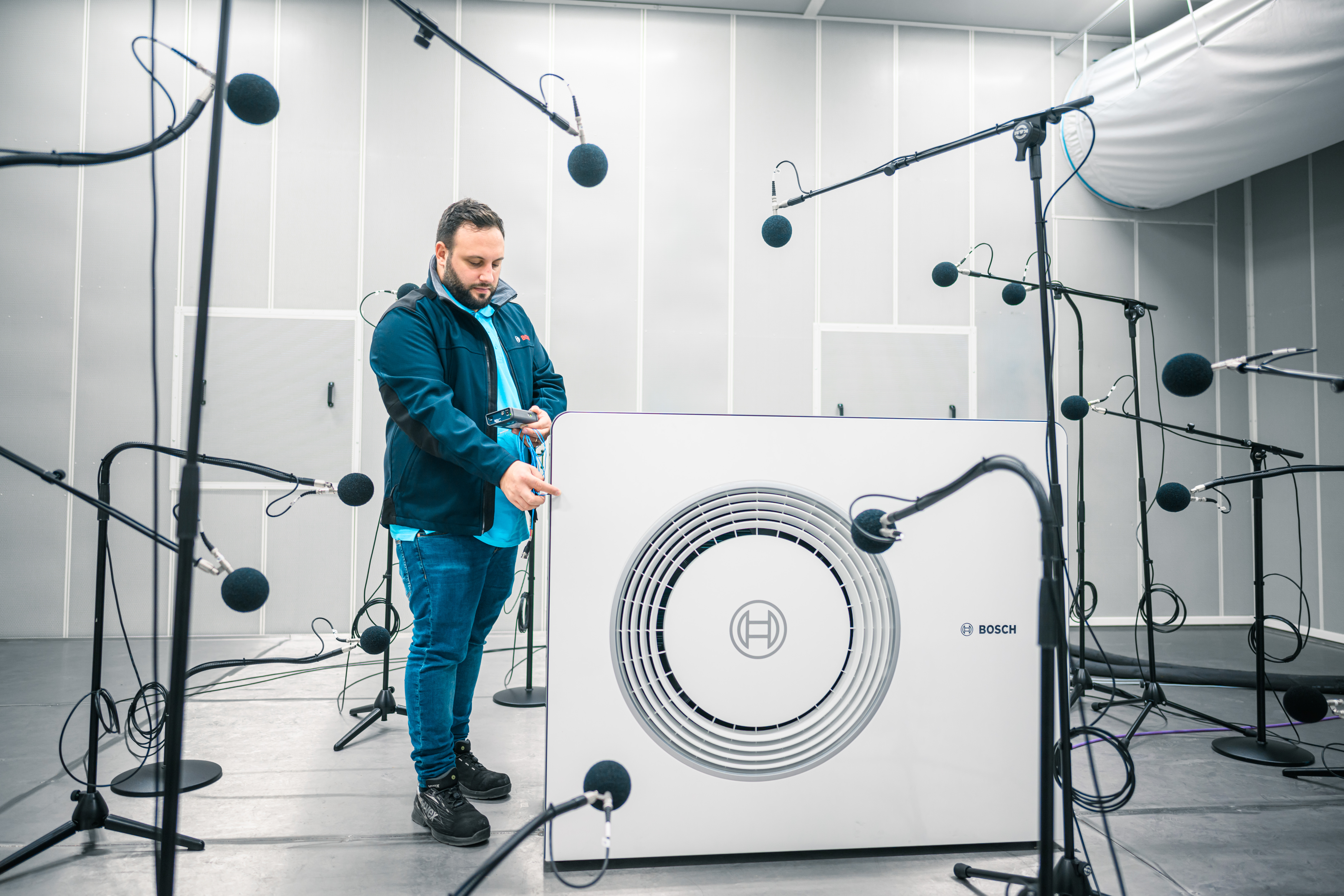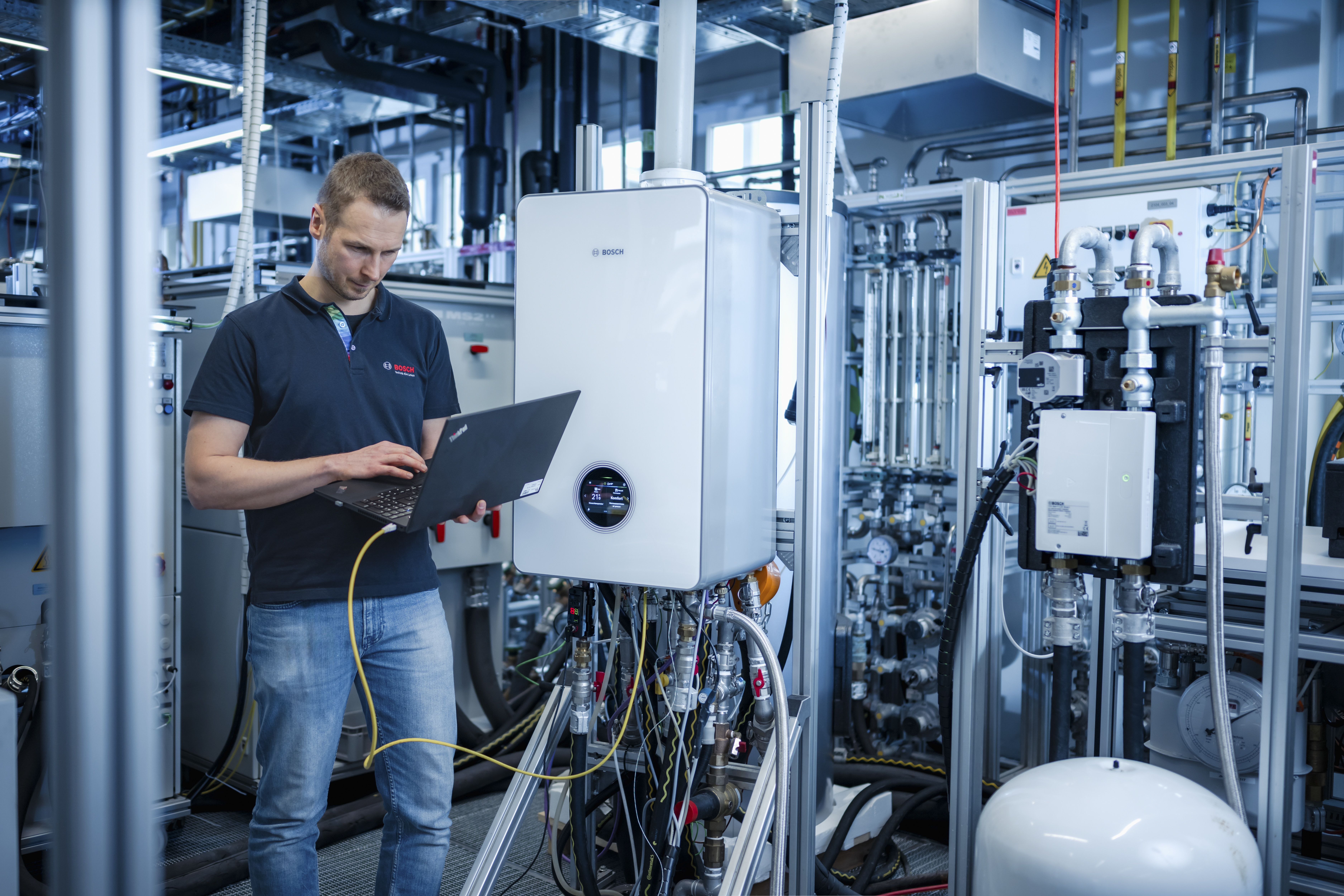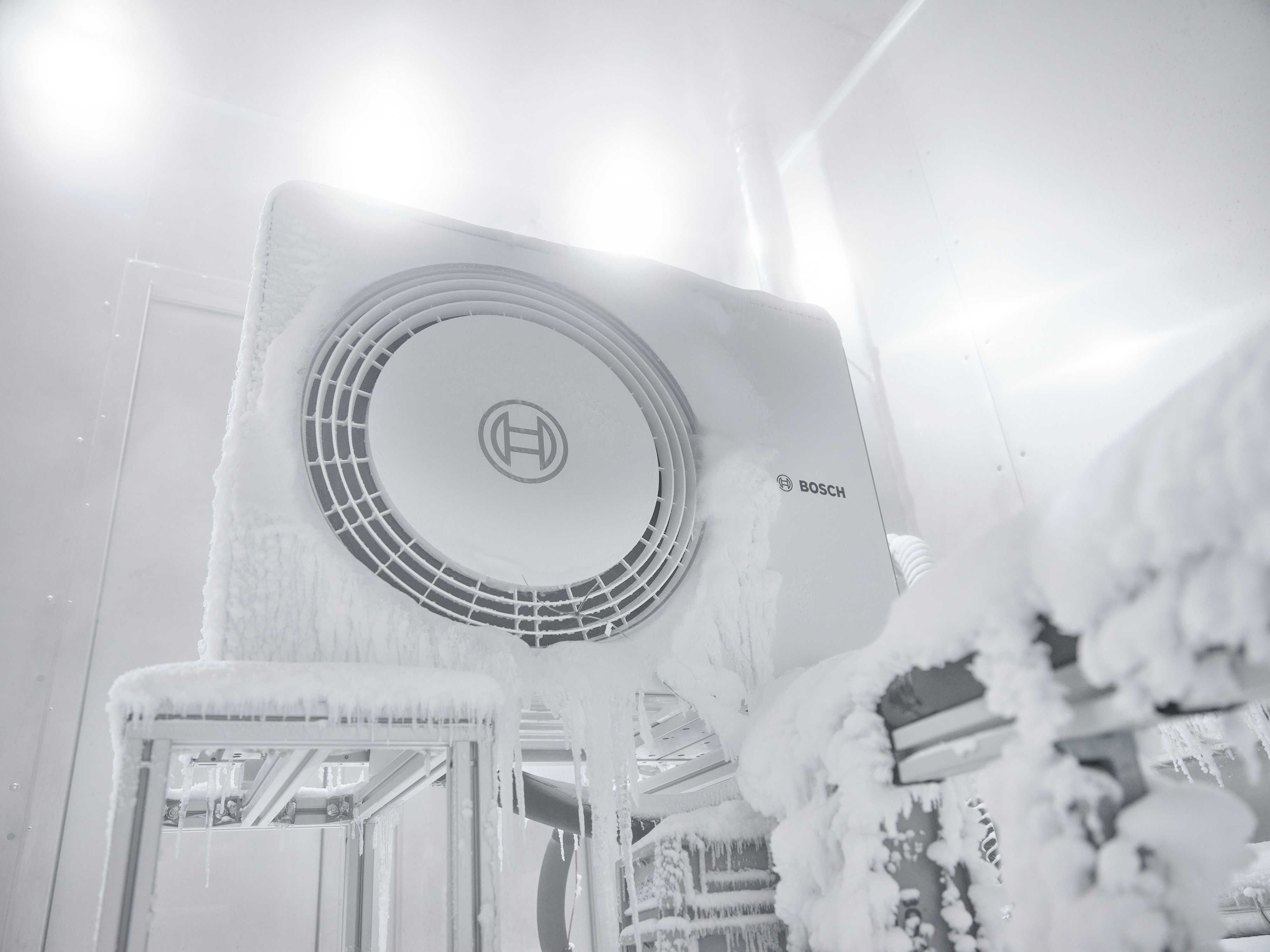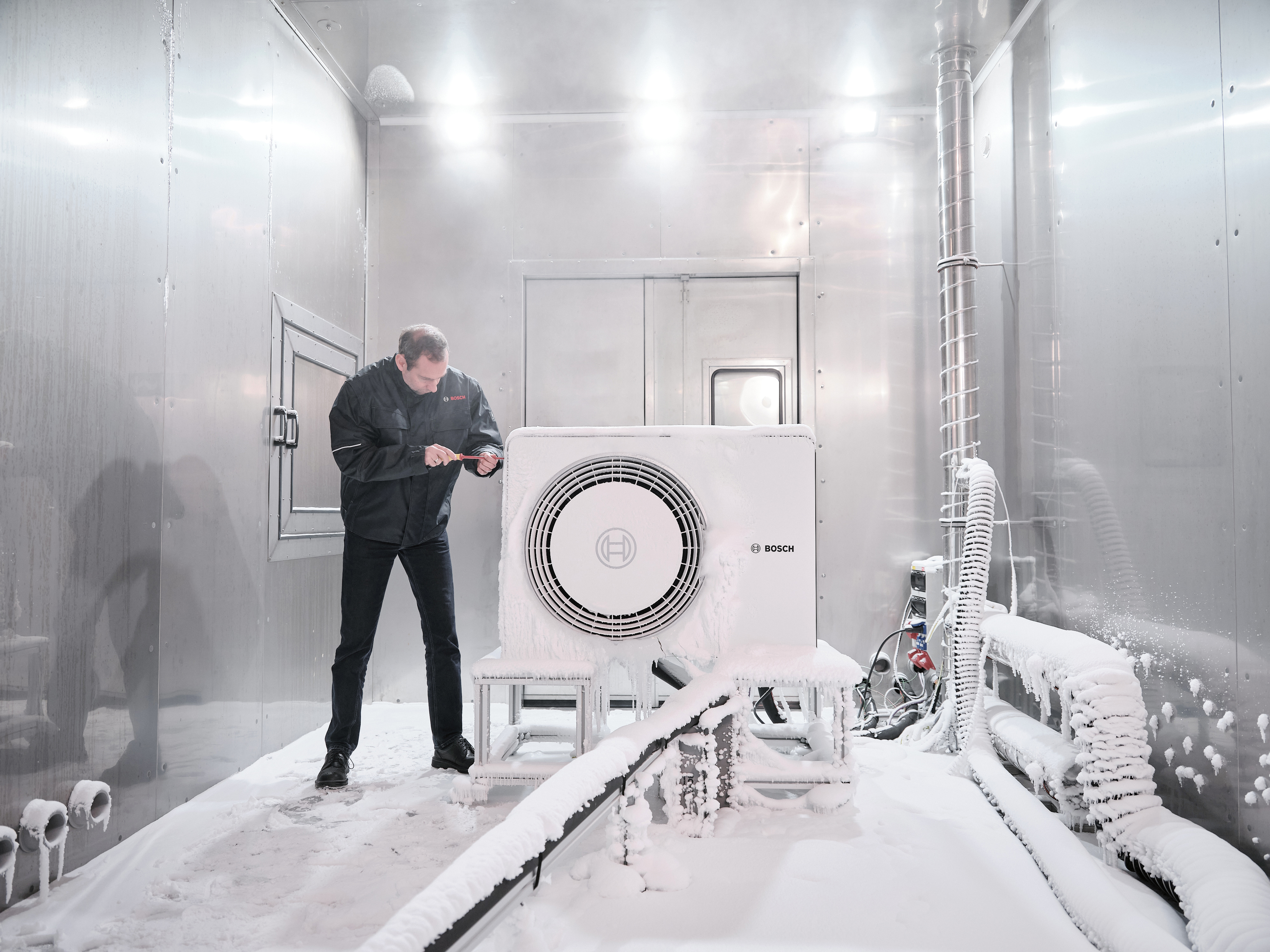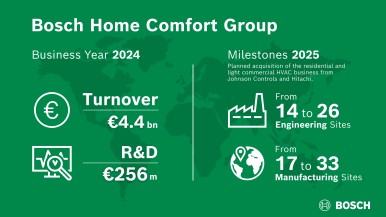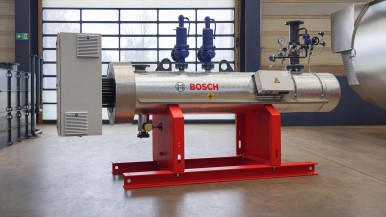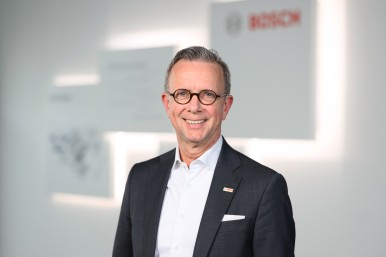The European picture is mixed: While markets with clearly defined subsidy programmes such as the Netherlands have seen significant growth in heat pumps and hybrid heat pump systems, other markets have seen a decline. However, the Bosch Home Comfort Group expects demand to stabilise and growth to return to normal in the medium term.
Compared to 2022, the company increased its research and development expenditure by 19 percent to 256 million euros. At around 14,600, the headcount was slightly higher than in the previous year. “We look back on a successful financial year, which was influenced by political decisions. One thing is for certain: without heat pumps and hybrid heat pump systems, it will not be possible to achieve a carbon-neutral building stock. That is why we will continue to pursue our electrification approach with great determination,” adds Brockmann.
Subsidy conditions ensure an increase in demand in the medium term
The Bosch Home Comfort Group expects the German market to get off to a slow start in the first half of 2024. The fact that subsidy conditions remained unclear for an extended period of time last year led to uncertainty among consumers and led to a decline in the number of applications for heat pump subsidies. “The subsidy conditions are now clear to consumers. We are cautiously optimistic that domestic demand for heat pumps and heat pump hybrids in Germany will increase again from mid-2024,” explains Jan Brockmann. In order to achieve climate neutrality in the German building sector, heat pumps and heat pump hybrids must be affordable for households in terms of purchase and operating costs. “We still believe that the Gebäudeenergiegesetz (Building Energy Act) should be expanded to include additional solution options such as ventilation systems with heat recovery,” adds Brockmann. “Regardless of this, now is a good time to take advantage of the attractive subsidy programme and opt for a heat pump or heat pump hybrid.”
Bosch Home Comfort Group prepared for heat pump ramp-up
With the full effect of the Building Energy Act from 2026 / 2028, the company forecasts a sustainable boost for electrification in the heating market. The Bosch Home Comfort Group is investing more than one billion euros in its European development and production network for heat pumps by 2030 to provide the necessary capacity. A major part of this investment, around 255 million euros, is to be spent on the construction of a new production site for heat pumps in Dobromierz in Lower Silesia by the end of 2027. 100 million euros will be invested in the expansion of the Aveiro site in Portugal by 2026. In Wernau, the company has set up a new laboratory with test benches for heat pumps, hybrid heat pump systems and ventilation systems. These strategic investments clearly reflect the Bosch Home Comfort Group’s commitment to the European market and underline its pioneering role in heat pump technology. “The Home Comfort Group has entered 2024 stronger than ever, with the aim of providing efficient and innovative heating, ventilation and air conditioning solutions and driving the full range of electrification solutions around the world,” says Jan Brockmann. At the CES in Las Vegas, Bosch presented a new air-to-air heat pump for outdoor temperatures down to minus 25 degrees Celsius, specially designed for the cold regions of North America. The Bosch cold climate heat pump meets the requirements of the U.S. Department of Energy and will now move from laboratory to field testing. “Not all heat pumps are the same. We develop models that are perfectly adapted to regional conditions for maximum home comfort,” explains Stefan Thiel, Executive Vice President responsibility for sales in Central Europe and parts of Eastern Europe.
Electrification in residential neighbourhoods and existing buildings
In addition to heat pump solutions for new builds, the Bosch Home Comfort Group's electrification portfolio also includes innovative and energy-efficient solutions for residential neighbourhoods and existing buildings that are eligible for subsidies.
For example carbon-neutral cold local heating networks, which are being set up in Germany and other countries, can make an important contribution to a carbon-neutral building stock. In the North Frisian municipality of Leck, the first phase of such a network is currently being built to supply 153 residential and commercial buildings, each of which is connected to a Bosch brine-to-water heat pump, with heat and hot water. A central collector field extracts heat from the ground, providing a particularly efficient energy supply for the neighbourhood.
Starting 2024, the Buderus brand will offer hybrid heat pump systems that also enable existing older apartment buildings in urban neighbourhoods to meet the requirements of the German Buildings Energy Act. The heat pump takes on the main load of the supply and the supplementary condensing boiler is only switched on during peak demand. These hybrid systems can supply sustainable heat to neighbourhoods of up to 100 residential units.
In 2024, the Bosch brand will launch the first air-to-air heat pump that can be used to heat and cool buildings. As it meets the requirements of the Federal Subsidy for Efficient Buildings (BEG), it is eligible for subsidies like any other Bosch heat pump.
Well-Being portfolio significantly expanded
The Bosch Home Comfort Group has significantly expanded its range of well-being products. From summer 2024, all air purifiers and mobile air conditioners will be controlled via the HomeCom Easy app, which is also used to control heat pumps. Modern energy management systems ensure an efficient and sustainable power supply for all consumers in the home. By distributing PV power intelligently and automatically, they can reduce electricity costs by up to 60 percent.
New services for specialised companies accelerate the energy transition
The Bosch Home Comfort Group and its brands are supporting heating contractors to make their daily work more efficient. Hands-on training courses teach heating contractors how to install heat pumps and hybrid heat pump systems efficiently and quickly. In 2023 alone, more than 20,000 installers were trained in electrification seminars. To support the next generation, the brands also offer further training programmes for teachers at vocational schools. According to the German Federal Statistical Office, the profession of HVAC system mechanic is one of the 10 most popular apprenticeships.
The Buderus and Bosch brands offer a wide range of digital solutions, such as remote monitoring of heating systems, and various services to make the daily work of HVAC contractors more efficient and give them more time for their core business – installing heating systems.
The Bosch brand’s new foundation service allows heating contractors to book the construction of foundations at the installation site of heat pump outdoor units as a service and to outsource this non-specialist activity.
The Buderus brand is currently setting up a new PV installation service. which includes advice, planning of the individual photovoltaic system and preparation of the all-in offer including installation.

